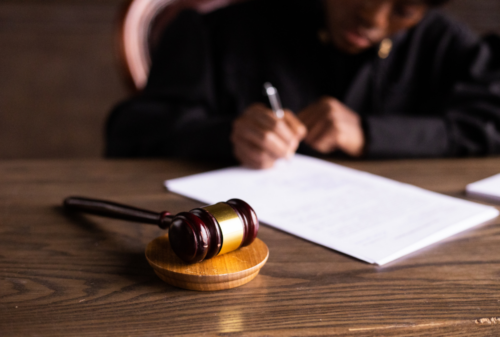If you’re facing criminal charges in Florida, you may hear the term “plea deal” or “plea bargain” early in your case. A plea deal is a legal agreement between you and the prosecutor: you agree to plead guilty or no contest to a charge, and in return, the prosecutor offers some form of concession-such as reduced charges, a lighter sentence, or dismissal of other charges.
This process is a cornerstone of Florida’s criminal justice system, resolving the vast majority of cases without going to trial.
It’s crucial to understand that accepting a plea deal is a major decision. While it can offer significant benefits, such as a quicker resolution or reduced penalties, it also means waiving your right to a trial and accepting the consequences of a conviction.
The prosecution’s initial offer is often designed to serve their interests, not yours, so it’s essential to carefully weigh both the advantages and the risks before agreeing to any deal.
Plea deals are typically offered early in the criminal process, sometimes right after charges are filed or during pre-trial negotiations. They are so common in Florida courts because they save time and resources for both the state and the defendant, sparing everyone the uncertainty and expense of a full trial.
At Malcolm Anthony, PA, our Ponte Vedra Beach criminal defense lawyer will guide you through these critical decisions, ensuring you fully understand your options and the long-term impact on your life. If you have questions about plea deals or your case, we’re here to help.
What is a Plea Deal?
A plea deal, also known as a plea bargain, is an agreement between you (the defendant) and the prosecutor in which you agree to plead guilty or no contest to a criminal charge in exchange for certain concessions. These concessions might include reduced charges, a lighter sentence, or the dismissal of other charges.
Types of Pleas in Florida:
In Florida, there are several types of pleas a defendant can enter, each carrying different legal implications and outcomes in a criminal case.
- Guilty Plea: You admit to committing the offense as charged, accepting responsibility and the penalties that follow
- No Contest (Nolo Contendere): You do not admit guilt but accept conviction and punishment as if you were guilty. A No Contest plea can be beneficial because it generally cannot be used as an admission of liability in related civil cases.
- Alford Plea: Although rare in Florida, an Alford plea allows you to maintain your innocence while acknowledging that the prosecution’s evidence is likely strong enough to result in a conviction.
How Plea Deals Are Negotiated
Plea negotiations are a back-and-forth process between your defense attorney and the prosecutor. The prosecutor may offer a plea deal based on factors such as the seriousness of the crime, the strength of the evidence, your criminal history, and your willingness to cooperate.
Your attorney’s role is to advocate for your best interests-seeking the most favorable terms possible, whether that means reduced charges, lighter sentencing, or alternative programs.
Once both sides have agreed to a plea deal, the agreement is presented to the judge. The judge reviews the deal to ensure it is fair, that you understand the consequences, and that your plea is made voluntarily. The judge has the authority to accept or reject the plea agreement. If accepted, the judge will then proceed to sentencing based on the terms of the deal.
Pros of Accepting a Plea Deal in Florida
Accepting a plea deal in Florida can offer several advantages, especially when facing serious charges or uncertain trial outcomes.
- Reduced Charges: You may plead to a lesser offense, such as a misdemeanor instead of a felony, which can significantly impact your record and future opportunities.
- Lighter Sentencing: Plea deals often come with reduced jail time, probation, or lower fines compared to the maximum penalties you’d face if convicted at trial.
- Faster Resolution: Trials can drag on for months or even years. A plea deal resolves your case quickly, letting you move forward.
- Less Public Exposure: By avoiding a trial, you limit the amount of information made public, which can help protect your reputation.
- Greater Control: Trials are unpredictable. A plea deal gives you more certainty about the outcome and allows you to have a say in the process.
Cons of Accepting a Plea Deal
While plea deals can offer certain benefits, they also come with significant drawbacks that can impact your rights, record, and future opportunities.
- Waiving Right to Trial: By accepting a plea, you give up your right to challenge the charges in court and have your case decided by a jury.
- Admitting Guilt: A guilty or no contest plea goes on your criminal record, which can affect employment, housing, and other aspects of your life.
- Limited Appeal Options: Once you accept a plea, your ability to appeal is extremely limited. In most cases, you cannot challenge the conviction later.
- Collateral Consequences: Even with reduced charges, you may face consequences like loss of a driver’s license, immigration issues, or problems with professional licenses.
- Pressure to Settle: Some people feel pressured to accept a deal, even if they believe they are innocent or have a valid defense.
Situations Where a Plea Deal Might Be a Good Option
While plea deals can be beneficial, there are situations where accepting one may not be in your best interest—especially if the evidence is weak or you’re confident in your defense.
- Weak Defense or Strong Prosecution Evidence: If the evidence against you is overwhelming, a plea deal may help you avoid the harshest penalties.
- First-Time Offenders: Prosecutors are often more willing to offer diversion programs or reduced charges to those with no prior record.
- Risk of Harsher Penalties at Trial: If losing at trial would mean a much longer sentence or a felony conviction, a plea deal can offer a safer, more predictable outcome.
When You Should Think Twice About a Plea Deal
There are circumstances where accepting a plea deal may not be the best choice—particularly if the terms are unfavorable or you have a strong chance of winning at trial.
- You Maintain Your Innocence: If you truly believe you can win at trial, you may want to fight the charges rather than accept a conviction.
- Significant Long-Term Consequences: If the plea still carries consequences that could impact your immigration status, career, or future, you need to weigh those carefully.
- Incomplete Review of Evidence: Never accept a plea until your attorney has thoroughly reviewed all the evidence and explained every option. Rushed decisions can lead to regret.
The Role of a Criminal Defense Attorney in Plea Negotiations
As your defense lawyer, our job is to:
- Assess the Strength of Your Case: We review all the evidence, identify weaknesses in the prosecution’s case, and evaluate your chances at trial.
- Negotiate Favorable Terms: We use our knowledge of the law and local courts to push for the best possible deal-whether that means reduced charges, lighter sentencing, or alternative programs.
- Explain the Legal Implications: Before you agree to anything, we make sure you fully understand what you’re accepting and what it means for your future.
Make Informed Decisions Before Accepting a Plea Deal; Call Our Criminal Defense Lawyer Today
Accepting a plea deal in Florida can have significant benefits-reduced charges, lighter sentences, and faster resolution-but it also comes with serious risks, including a permanent criminal record and limited appeal rights. Every case is unique, and the right choice depends on your specific circumstances, the evidence, and your goals.
Before making any decision about a plea deal, consult with an experienced criminal defense attorney who knows the local courts and can give you honest, strategic advice. At Malcolm Anthony, PA, we’re here to guide you every step of the way. If you have questions or need help with your case, call us at (904) 285-4529 for a confidential consultation.



